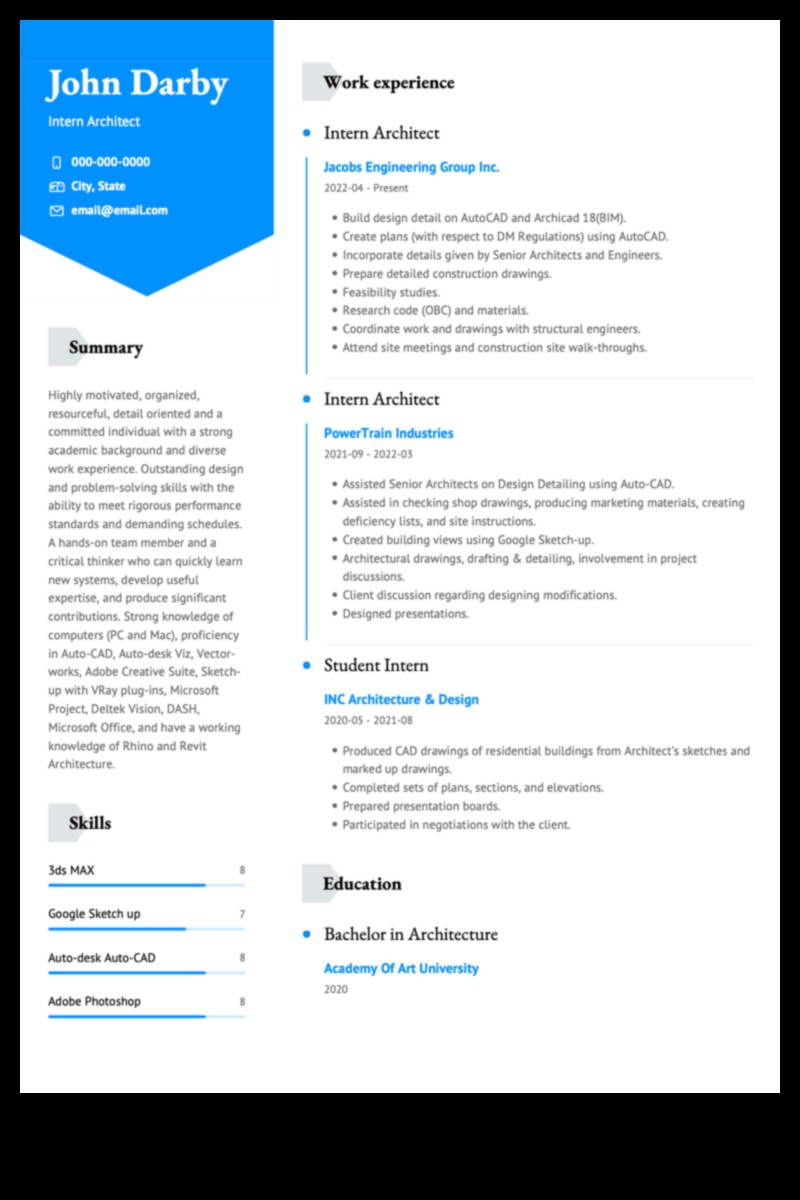
How to Write a Resume for an Internship
A resume is a critical document for any job seeker, but it is especially important for students and recent graduates who are looking for internships. A well-written resume can help you stand out from the competition and land the internship of your dreams.
This guide will walk you through the process of writing a resume for an internship, from choosing the right format to highlighting your skills and experience. We’ll also provide tips on how to tailor your resume to specific internships and how to make sure it is error-free.
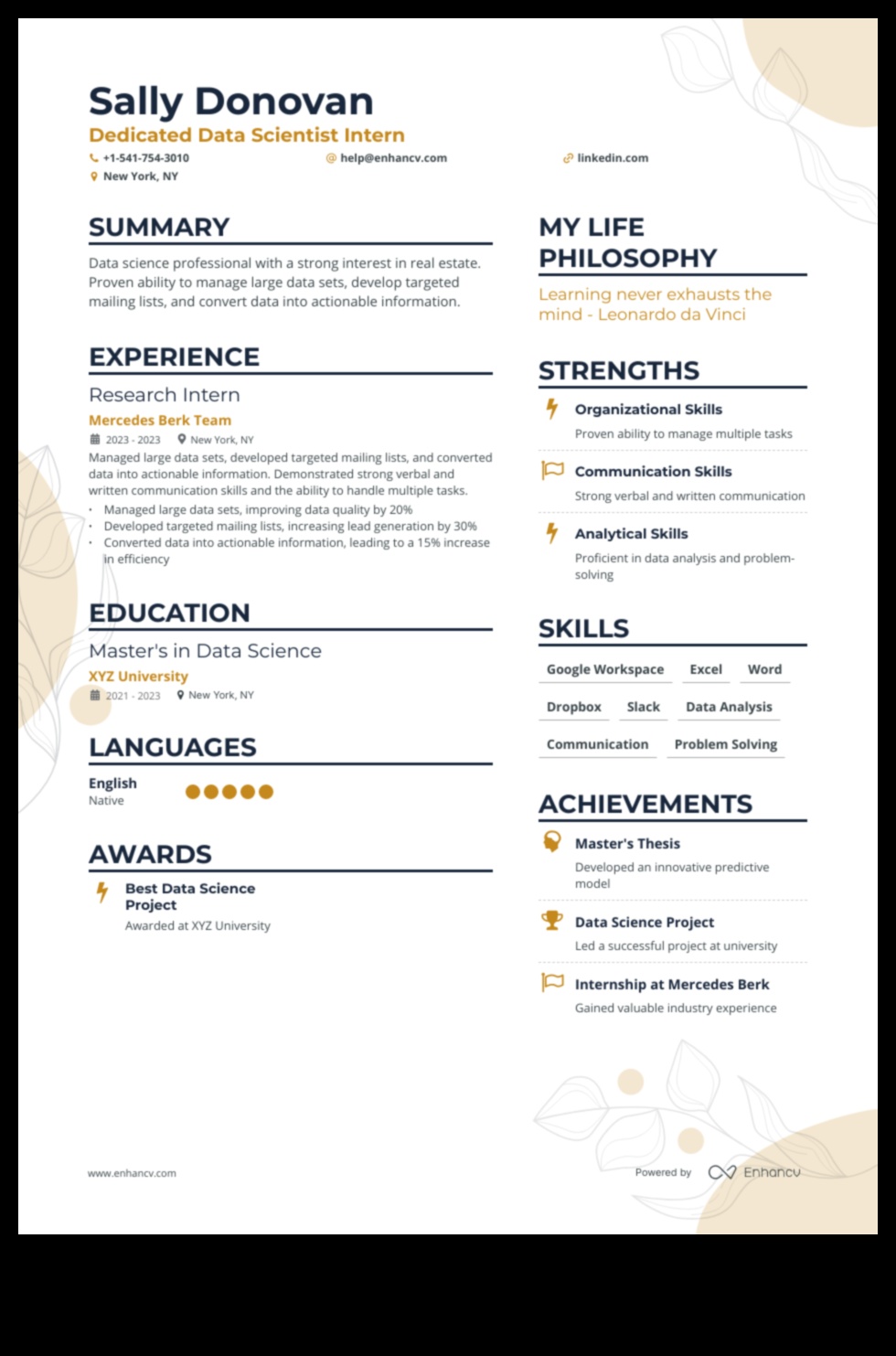
The Basics of a Resume
A resume is a one-page document that summarizes your education, work experience, skills, and accomplishments. It is typically used to apply for jobs, but it can also be used to network with potential employers or to get involved in extracurricular activities.
There are many different formats for resumes, but the most common is the chronological resume. This format lists your work experience in reverse chronological order, starting with your most recent job. Another popular format is the functional resume, which emphasizes your skills and accomplishments rather than your work history.
When choosing a format for your resume, it is important to consider the type of job you are applying for and the preferences of the hiring manager. If you are not sure which format to use, you can always ask a career advisor or mentor for advice.
Targeted Keywords
When writing your resume, it is important to use targeted keywords. These are words and phrases that are relevant to the job you are applying for. Targeted keywords can help your resume get noticed by hiring managers who are using applicant tracking systems (ATS) to screen resumes.
To find targeted keywords, you can read through the job posting and take note of the skills and qualifications that the employer is looking for. You can also use a keyword research tool to find relevant keywords.
Once you have a list of targeted keywords, you can use them throughout your resume, especially in the skills section and in your work experience descriptions.
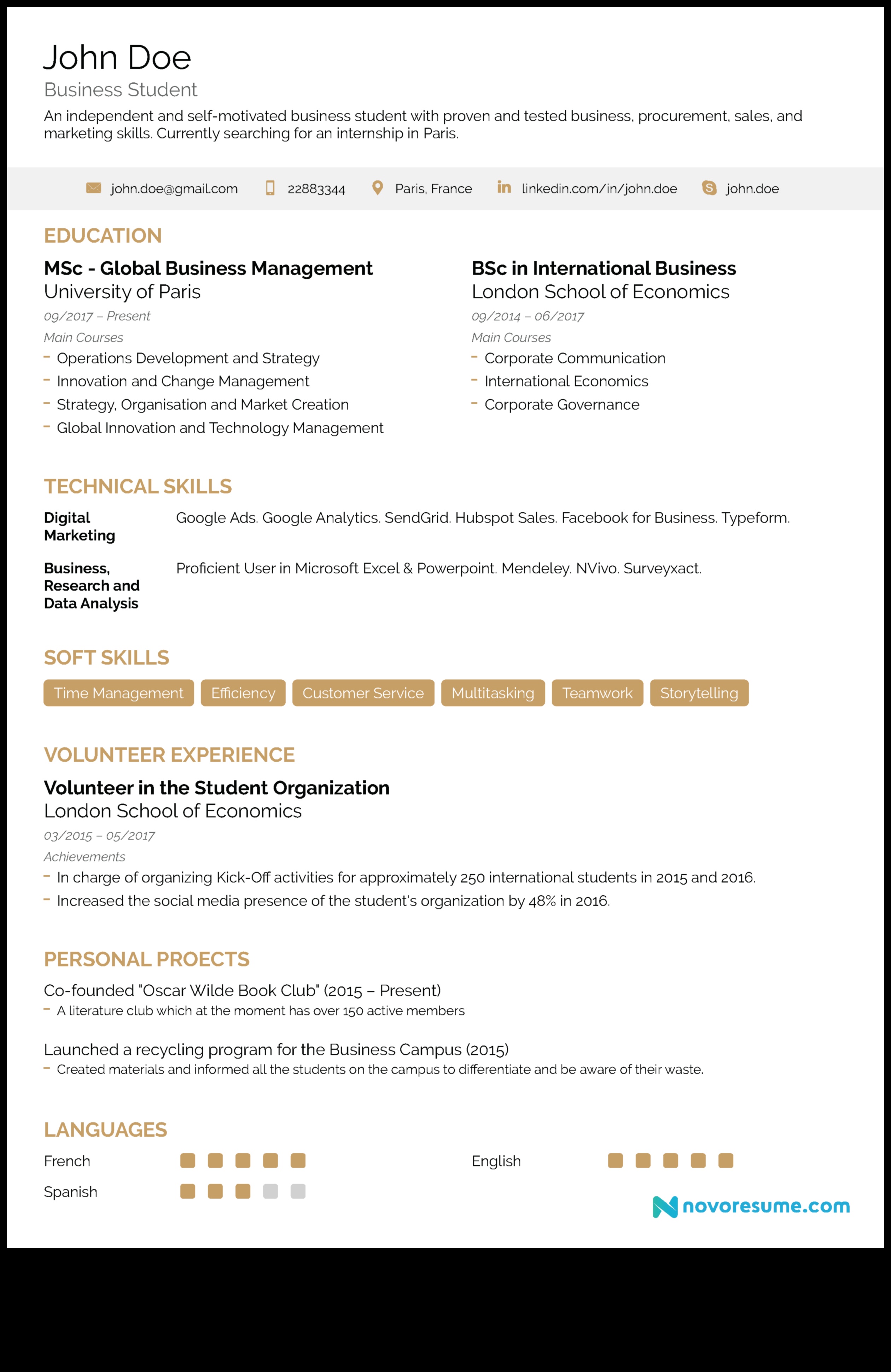
Action Verbs
Action verbs are verbs that describe specific actions that you have taken. They are an important part of your resume because they help to highlight your skills and accomplishments.
When writing your resume, use action verbs to describe your work experience, your education, and your extracurricular activities. Some examples of action verbs include: achieved, analyzed, collaborated, communicated, created, developed, designed, led, managed, marketed, presented, problem-solved, and wrote.
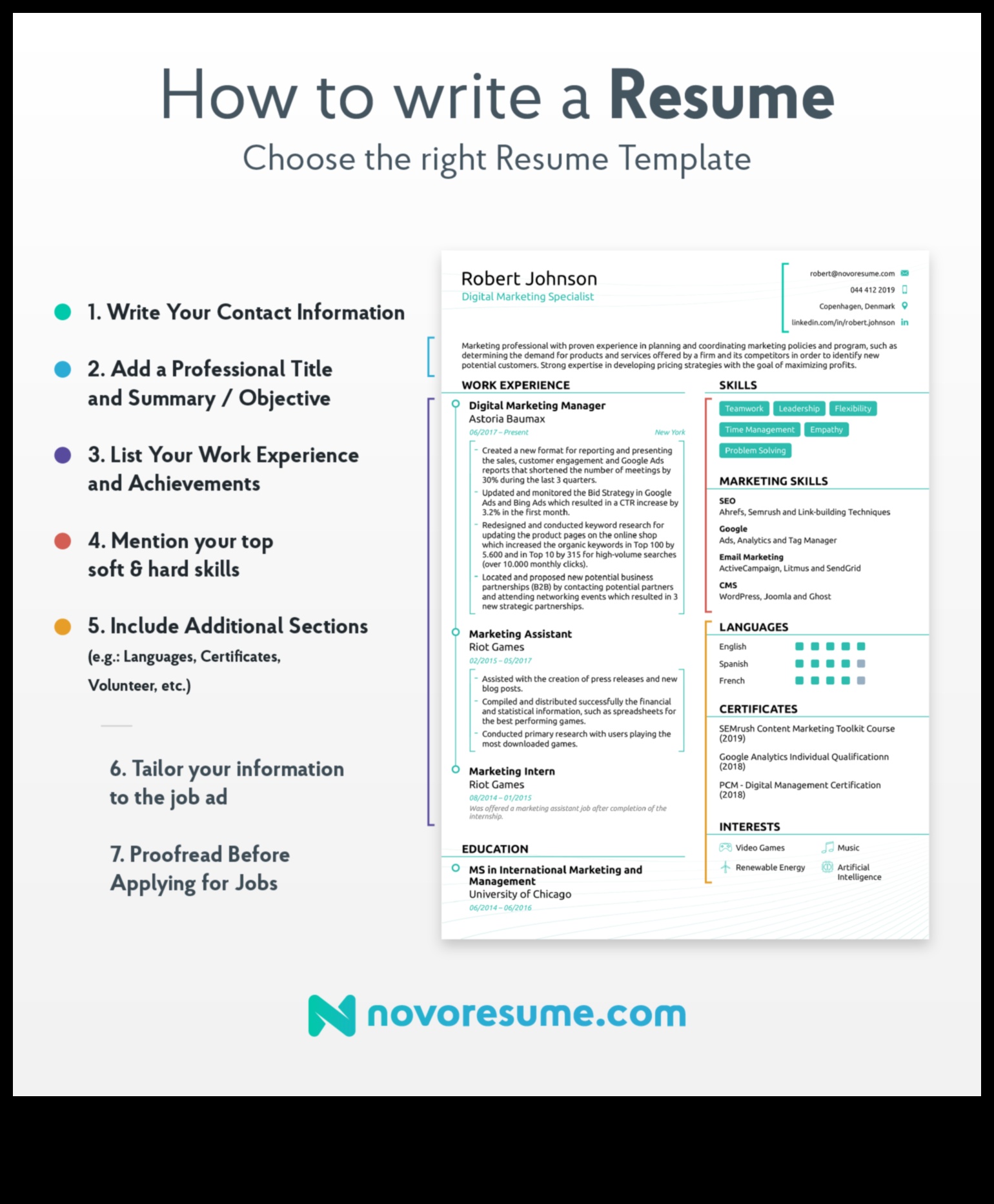
Quantifiable Accomplishments
Quantifiable accomplishments are specific, measurable results that you have achieved. They are an important part of your resume because they help to demonstrate your value to potential employers.
When writing your resume, include quantifiable accomplishments whenever possible. For example, instead of saying “I managed a team of employees,” you could say “I managed a team of 10 employees and increased sales by 15%.”
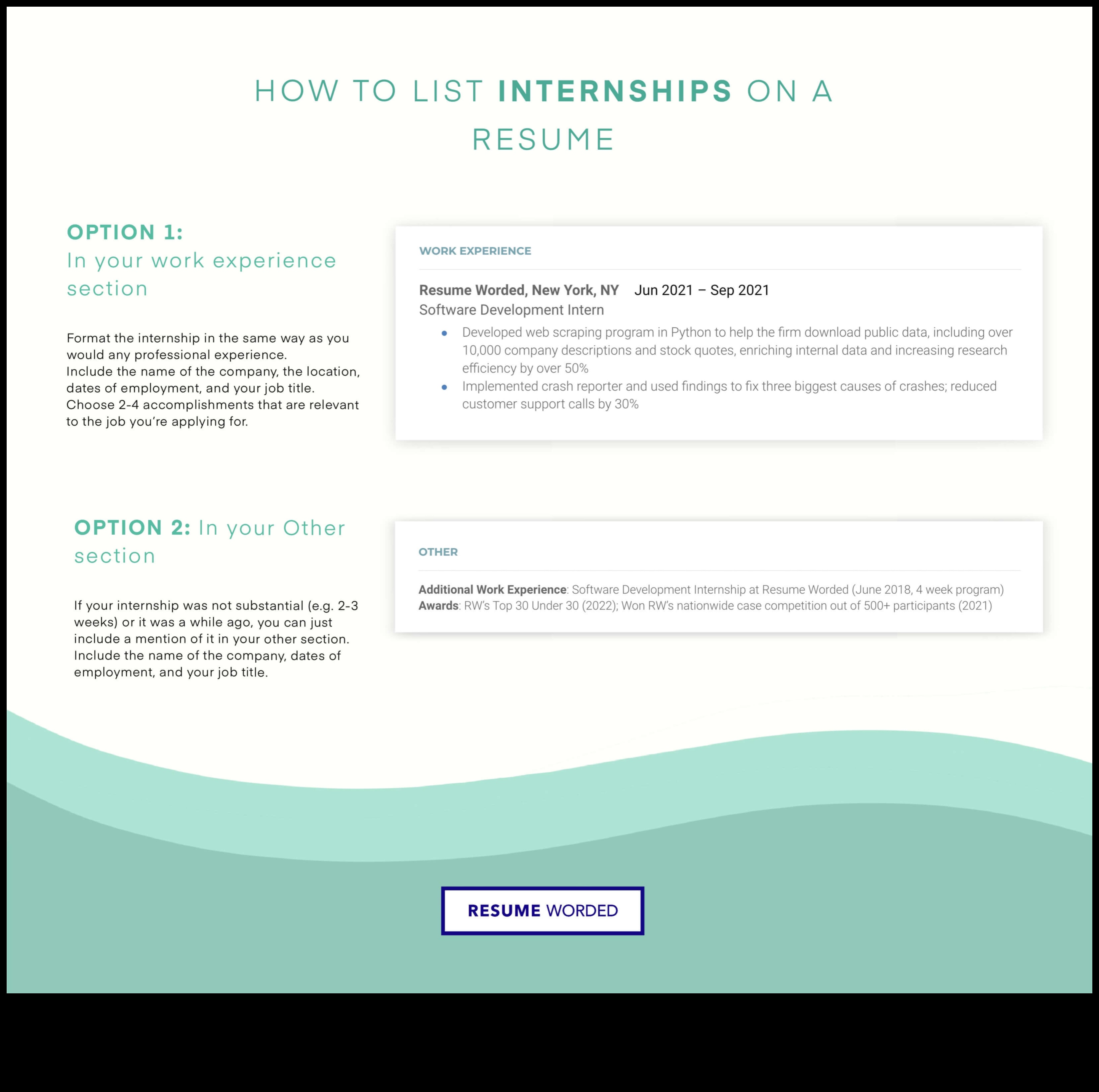
Relevant Experience
The most important part of your resume is your work experience. This is where you have the opportunity to show potential employers what you can do.
When listing your work experience, be sure to focus on the most relevant jobs for the internship you are applying for. Highlight your skills and accomplishments, and use quantifiable language to describe your results.
Education
Your education is another important part of your resume. This is where you can show potential employers that you have the skills and knowledge to succeed in the internship.
When listing your education, be sure to include your degree, your major, your GPA, and any honors or awards you received. You can also include a brief description of your coursework.
Skills
In addition to your work experience and education, you should also include a list of your skills on your resume. This is an opportunity to highlight your technical skills, your soft skills, and any other skills that are relevant to the internship you are applying for.
When listing your skills, be sure to use keywords that are relevant to the job you are applying for. You can also include
| Feature | Answer |
|---|---|
| Internship | A temporary position in which a student or recent graduate works for a company or organization in order to gain experience. |
| Resume | A written summary of a person’s qualifications, skills, and experience, typically used when applying for a job. |
| Job search | The process of looking for a job. |
| Career | The progress of a person’s working life, especially in terms of their jobs and achievements. |
| Job application | The process of submitting a resume and cover letter to a potential employer in order to apply for a job. |
II. The Basics of a Resume
A resume is a one-page document that summarizes your work experience, education, and skills. It is used to market yourself to potential employers and get you hired for a job. When writing a resume, it is important to keep it concise and focused, and to highlight your skills and experience in a way that makes you stand out from other candidates.
There are a few key elements that every resume should include:
- Your name and contact information
- A summary of your skills and experience
- Your work experience
- Your education
- Your skills
- Your references
It is also important to make sure that your resume is formatted correctly and that it is free of errors.
III. Targeted Keywords
When writing your resume, it is important to use targeted keywords that will be relevant to the internship you are applying for. This means using keywords that are specific to the industry and the position you are interested in. You can find these keywords by reading through job postings and taking note of the terms that are used to describe the ideal candidate. Once you have a list of keywords, you can use them throughout your resume, including in your skills section, your work experience descriptions, and your education section.
IV. Action Verbs
Action verbs are verbs that describe specific actions that you have taken. They are important to include in your resume because they help to highlight your skills and experience. When choosing action verbs, be sure to use verbs that are specific and relevant to the job you are applying for. Here are some examples of action verbs that you can use on your resume:
- Administered
- Analyzed
- Collaborated
- Communicated
- Created
- Developed
- Directed
- Employed
- Encouraged
- Generated
- Implemented
- Instructed
- Managed
- Negotiated
- Organized
- Oversaw
- Produced
- Promoted
- Represented
- Researched
- Sold
- Solved
- Taught
- Trained
- Wrote
V. Quantifiable Accomplishments
Quantifiable accomplishments are specific, measurable achievements that you have made in your work or education. They can be used to demonstrate your skills and experience, and to show potential employers that you are a valuable candidate for their internship.
When writing about your quantifiable accomplishments, be sure to include the following information:
- The specific task or project that you completed
- The measurable results of your work
- The impact of your work on the organization or team
For example, you could write: “Increased sales by 15% by implementing a new marketing campaign.” or “Reduced customer complaints by 20% by implementing a new customer service process.”
Quantifiable accomplishments are a powerful way to show potential employers that you are a results-oriented individual who can make a positive impact on their organization.
VI. Relevant Experience
This section of your resume should highlight your most relevant experience for the internship you are applying for. When writing about your experience, be sure to focus on the skills and accomplishments that you have that are most relevant to the internship.
You can also use this section to highlight any internships or other experiences that you have that have given you the opportunity to work on projects that are similar to the ones that you would be working on in the internship.
When describing your experience, be sure to use action verbs and quantify your accomplishments whenever possible. This will help to make your resume more readable and will also help to highlight the value that you can bring to the internship.
VII. Education
Your education section should list your schools, degrees, and dates of attendance. You should also include your GPA if it is above 3.0. If you have any relevant coursework or honors, you can list those here as well.
Here is an example of an education section:
University of California, Berkeley
Berkeley, CA
Bachelor of Arts in Economics
GPA: 3.8
2018-2022
Coursework:
* Microeconomics
* Macroeconomics
* Econometrics
* International Economics
* Financial Economics
* Business Statistics
Honors:
* Dean’s List (every semester)
* President’s List (2021)
* Dean’s Award for Excellence in Economics (2022)
VIII. Skills
Your skills section should list all of the hard and soft skills that you have that are relevant to the internship position you are applying for. Hard skills are specific, technical skills that you have acquired through education or training, such as programming languages, software applications, or technical certifications. Soft skills are interpersonal skills that are important in the workplace, such as communication, teamwork, and problem-solving.
When listing your skills, be sure to use clear and concise language and to quantify your skills whenever possible. For example, instead of saying “I have experience with programming”, you could say “I have 3 years of experience with Python and Java”.
You should also be sure to tailor your skills section to each individual internship position that you apply for. This means highlighting the skills that are most relevant to the job posting.
Here is an example of a skills section that you could use for an internship position in software engineering:
- Programming languages: Python, Java, C++, C
- Software applications: Eclipse, IntelliJ IDEA, Visual Studio
- Technical certifications: AWS Certified Solutions Architect Associate, Google Cloud Platform Professional Cloud Architect
- Interpersonal skills: Communication, teamwork, problem-solving
IX. References
When you are listing your references on your resume, it is important to include the following information:
- The name of the person
- Their title
- Their company
- Their contact information
It is also important to get permission from your references before you list them on your resume. This will ensure that they are comfortable with being contacted by potential employers.
When you are writing your references, be sure to highlight the positive qualities that you have and how you have worked well with them. This will help potential employers to see that you are a valuable asset to their team.
X. FAQ
Q: What is the best way to format my resume?
A: There is no one-size-fits-all answer to this question, as the best format for your resume will depend on your experience and the type of internship you are applying for. However, there are some general tips that you can follow to make sure your resume is well-organized and easy to read.
* Use a clean, professional font and font size.
* Use bullet points to list your experience and accomplishments.
* Keep your resume concise and to the point.
* Tailor your resume to the specific internship you are applying for.
Q: What keywords should I include in my resume?
A: When you are writing your resume, it is important to include keywords that are relevant to the internship you are applying for. You can find these keywords by reading through the job description and identifying the skills and qualifications that the employer is looking for. Once you have a list of keywords, you can incorporate them into your resume by using them in your skills section, your work experience descriptions, and your education section.
Q: How can I make my resume stand out from other candidates?
There are a number of things you can do to make your resume stand out from other candidates, including:
* Using keywords in your resume
* Tailoring your resume to the specific internship you are applying for
* Highlighting your skills and accomplishments
* Using a professional font and format
* Proofreading your resume carefully before submitting it